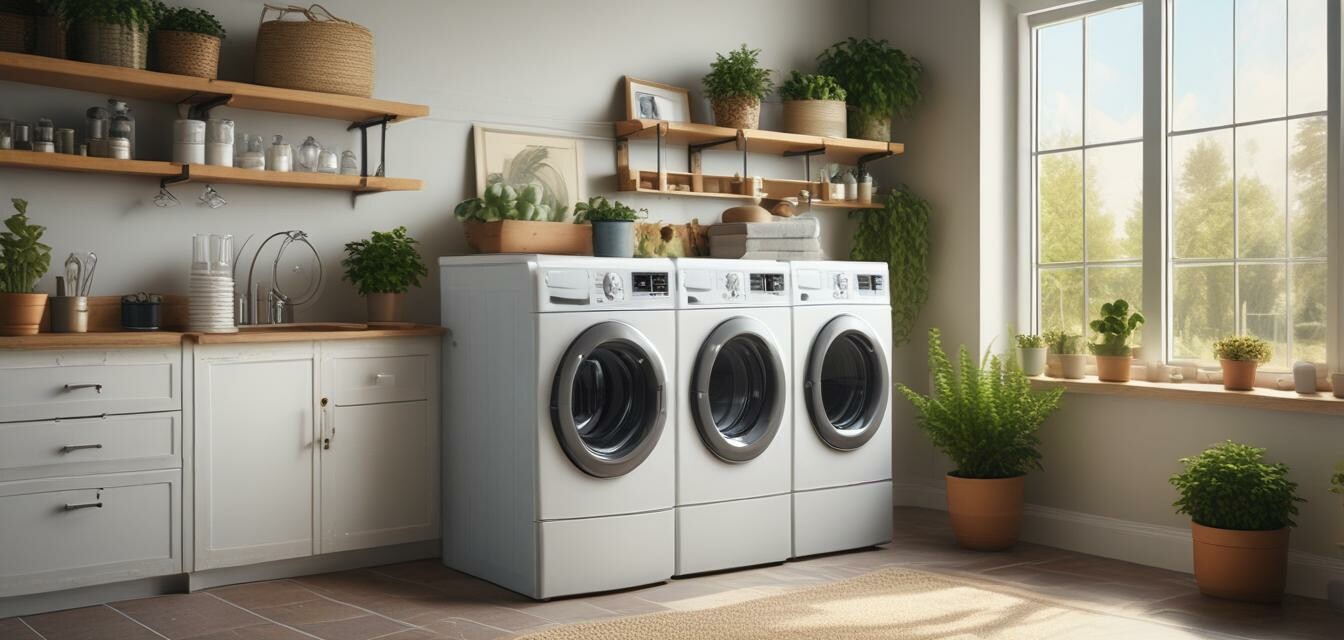
Energy Efficient Practices for Laundry Day
Key Takeaways
- Choose the right load size to optimize washing and drying efficiency.
- Utilize the cold water setting for both washing and rinsing.
- Keep your appliances well-maintained for peak performance.
- Consider the best times to do laundry to take advantage of lower energy rates.
- Explore energy-efficient models when upgrading your appliances.
Doing laundry is a regular task in most households, but it doesn't have to be energy intensive. By adopting energy-efficient practices, you can save money and minimize your environmental impact. This article provides practical advice on maximizing energy efficiency during laundry day, emphasizing optimal settings and appliance choices for washers and dryers.
Understanding your washing machine and dryer settings
Modern washing machines and dryers come with a variety of settings designed to maximize efficiency. Understanding these settings can significantly enhance your laundry experience. Here are some key aspects to keep in mind:
| Setting | Description | Energy Efficiency Tip |
|---|---|---|
| Cold water wash | Washes clothes effectively without heating the water. | Always opt for cold water unless you have heavily soiled items. |
| High spin speed | Extracts more water from clothes during the spin cycle. | Use this setting to reduce drying time and energy consumption. |
| Time dry | Allows users to set a specific drying time. | Check clothes frequently to prevent over-drying. |
| Eco-friendly mode | Optimizes energy usage during wash and dry cycles. | Utilize this mode if available for extra savings. |
Load size matters
The size of your laundry load significantly impacts energy efficiency. Here's how to maximize efficiency based on load size:
- Full Loads: Always try to wash full loads. This maximizes resource use and minimizes energy consumption.
- Small Loads: If you must wash small loads, consider adjusting the water level setting, if available. This prevents unnecessary water and energy use.
- Even Distribution: When using a dryer, distribute clothes evenly to avoid longer drying cycles.
The right time for laundry
Timing your laundry can also play a crucial role in energy savings. Here are some tips:
- Consider washing clothes during off-peak hours, usually early morning or late evening, when energy rates are lower. This is often referred to as time-of-use pricing.
- Using your appliances during warmer months may allow for natural drying outside, saving energy.
Maintaining your appliances for optimal performance
Regular maintenance is essential for the longevity and efficiency of your washing machine and dryer. Here are some maintenance tips:
- Regular cleaning: Clean the lint filter in your dryer after every load to improve airflow and efficiency.
- Check hoses and connections: Regularly inspect hoses for any leaks or restrictions.
- Descale your washing machine: Use a suitable descaler periodically to prevent buildup.
Choosing energy-efficient appliances
If you're in the market for new appliances, consider the following:
- Look for ENERGY STAR® rated appliances that meet strict energy efficiency guidelines.
- Choose models that provide customizable settings to meet your specific needs.
- Consult washing machine product reviews to assess energy efficiency based on user feedback.
Maximizing drying efficiency
Drying clothes can consume a lot of energy, but you can minimize impact with these practices:
- Use dryer balls to improve airflow and speed up drying time.
- Consider air drying clothes whenever possible on dry, sunny days.
- Check and clean the dryer vent regularly to prevent clogs and improve efficiency.
Conclusion
By implementing these energy-efficient practices on laundry day, you can significantly reduce energy consumption without sacrificing cleanliness or convenience. It’s all about making intentional choices regarding your appliances and habits. For more tips on optimizing your appliance usage, explore our Tips and How-to Articles section.
Pros
- Lower electricity bills through energy-efficient practices.
- Environmental benefits associated with reduced energy consumption.
- Extended lifespan of appliances through proper maintenance.
Cons
- Initial investment in energy-efficient appliances may be higher.
- Some practices may require lifestyle adjustments.
